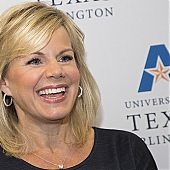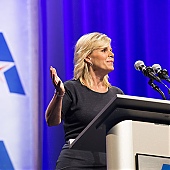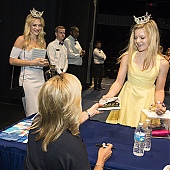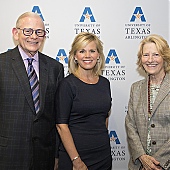Research Quells Breast Milk Contaminant Fears
Summer 2012 · Comment ·
For years doctors have extolled the benefits of breastfeeding infants while remaining concerned about the potential for mothers to unwittingly pass on environmental contaminants in their milk. Now, UT Arlington researchers have discovered that the risk might not be as great as feared.
Purnendu “Sandy” Dasgupta, the Jenkins Garrett Professor of Chemistry and Biochemistry, and his team have found evidence that breastfed babies can metabolize the environmental contaminant perchlorate, thus decreasing their potential for exposure.
“Both Centers for Disease Control researchers and our lab have previously observed that there is a higher concentration of perchlorate in breast milk versus formula. Although the merits of breastfeeding far outweigh any risk posed by this, it has caused some mothers concern,” Dr. Dasgupta says. “Our results suggest that nature has already devised a way to at least partly take care of it.”
Dasgupta’s team did not find similar evidence of perchlorate metabolism in a small number of samples from formula-fed infants. But, he explains, “formula-fed babies get much less perchlorate anyway, so the risk is not as great.”
Perchlorate occurs naturally in the environment and in rocket fuel, fireworks, some fertilizers, and road flares. Evidence suggests that it can block the uptake of iodine to the thyroid and disrupt the production of hormones necessary for normal neurological development. Reports of high levels of perchlorate have not been widespread, but in 2011 the U.S. Environmental Protection Agency announced that it would develop regulations to protect Americans from potential health problems.
An article in the American Chemical Society Journal of Environmental Science and Technology details the researchers’ study.




















